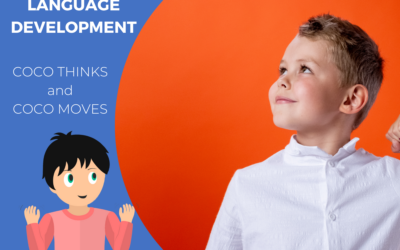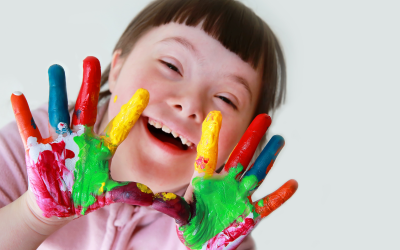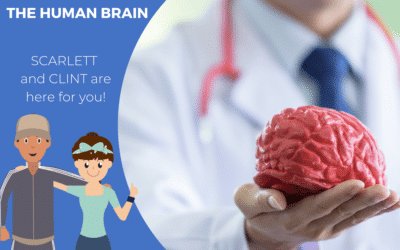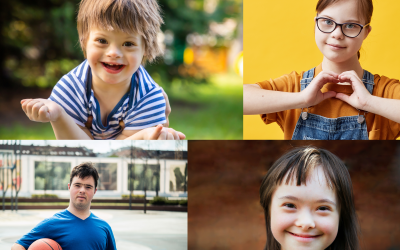We therefore advise you to give particular importance to the management of the case as soon as an adult is diagnosed with autism. If you don’t know how to do this, you can start by reading this article right away!
What is autism?
Autism is a neurodevelopmental disorder. The first symptoms may appear around the age of 3. Symptoms may affect communication, social interaction or behavior. The severity of these symptoms varies, which is why autism can be identified later or later in a person’s life. It is therefore possible for a person to be diagnosed with autism as an adult.
There is no cure for autism, but it is possible to undergo therapy to learn to overcome one’s weaknesses and difficulties.
Establishing a high quality of life for an adult with autism
First and foremost, it is important to consider the person with autism in every decision that affects them. This is essential to help the person have a good quality of life. It is important to take the time to communicate and give the adult the freedom to make decisions about his or her own life. You can then set up devices to help him or her live the life that the autistic person has desired.
It will also be important to help him/her integrate into a mainstream environment so that he/she can continue to live with his/her circle normally. His or her life will simply be accompanied by different aids to allow you to benefit from a personalized set up.
Whatever decisions you make regarding the support of the autistic adult, you must remember to be flexible. It will be important to personalize the measures in order to adapt to the situation in real time. Symptoms can worsen overnight and require more extensive care.
We also advise you to take charge of the autistic adult’s environment to help him or her benefit from listening and caring day after day. Of course, you will need to make sure that you surround yourself with qualified professionals in order to successfully get help with the steps that need to be taken. As a family member, you must remain present in the life of an autistic adult in order to provide him or her with a reference point through appropriate support.
Finally, it will be important to set up appointments to participate in various workshops and to develop his or her abilities through a welcoming environment. It will be possible to benefit from numerous interventions to help the adult develop his communication, but also his motor skills. Each detail will help an autistic adult to feel loved and surrounded in his life in order to blossom in all security.
Symptoms in adults with autism
Autism is a very diverse disorder that can manifest itself with symptoms in different areas and with varying severity. Usually, autism is diagnosed when the person is still a child, but when the symptoms are milder, it is possible that the person will discover that he or she has autism as an adult.
In adulthood, the symptoms are more focused on the relational and emotional side. You may see little interest in others and difficulties in communication. The person with autism does not understand sarcasm, humor or the hidden meaning of words. To him or her, every sentence means its exact literal meaning.
In addition, the person with autism tends to talk about only a few specific topics, without trying to understand the other person’s interest.
This difficulty in communication does not help people with autism make friends and can lead to misunderstandings.
Another symptom that can be seen in a person with autism is the need to have routines. These routines allow the person to control their life and the environment. For a person with autism, unexpected variables, changes or events cause frustration and imbalance.
Life as an Adult with Autism
It is important to keep in mind that autism is a very broad disorder and that each person is different. Each individual can have a different future and it depends on the severity of the symptoms, but also, and especially, on the support that he or she will have and on his or her passions or personality.
Finding one’s place in society is never easy. For an adult with autism, it will be even more difficult. You need to discover the person’s qualities and invest in them to help integration.
In addition, to integrate into social life or a job, you can also contact associations that help people with autism find their way.
When the symptoms are mild, an adult with autism can have a normal life with a job and a family. Support is essential in this case to allow the person to be comfortable in his or her life and to find strategies to overcome difficulties.
Therapy for autism
When there is a diagnosis of autism, the person must be treated by a health professional. The goal of the therapy is to identify the person’s weaknesses and to give him or her the strategies and tools to remain independent in daily life.
It is also important for the family to participate in sessions or appointments with health professionals. This can help them understand how to talk and act with the person with autism.
It is not only the adult with autism who needs to adapt, but also the environment that needs to adapt to him/her.
CLINT, your brain coach
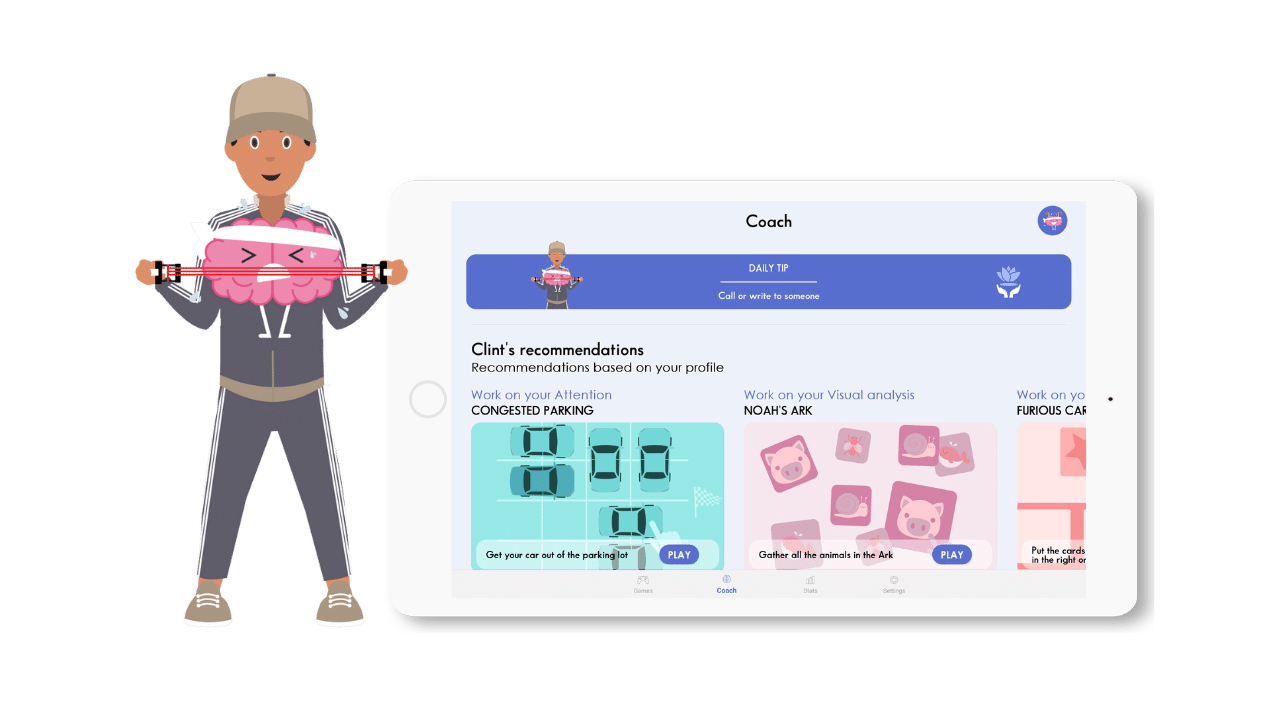
CLINT is an app on tablet or smartphone with more than 30 games to stimulate cognitive functions. With CLINT, you can improve your memory, attention, logic and also your language. For an adult with autism, it is important to work on all cognitive functions to be able to integrate into social life and find a job.
The app also offers the possibility to challenge friends with online games. This allows the person with autism to stay in touch with friends, even from a distance. In addition, the app can become a new topic of conversation when they go to meet in person.
Other articles you might be interested in:
Supporting children with autism
Dynseo proposesSUPPORTING CHILDREN WITH AUTISM with COCO THINKS AND COCO MOVESDynseo and its team are very much...
Supporting DYS children with COCO THINKS and COCO MOVES
Dynseo proposesDYS disorders with COCO THINKS and COCO MOVESOur educational and pedagogical games program COCO THINKS...
Language development
Children communicate from birth with movements, crying, looking at each other or with smiles. After only a few months,...
Supporting children with Down Syndrome with Coco
Dynseo proposesDOWN SYNDROME with COCODown syndrome is a non-hereditary chromosomal abnormality that leads to the...
Supporting people after a stroke
Dynseo proposesStroke with CLINT, your brain training coachThe Dynseo team is very involved in helping people who have...
Supporting someone with Alzheimer’s
In this guide, we will detail how SCARLETT can be used for supporting someone with Alzheimer's. SCARLETT is a...
10 myths about the human brain you didn’t know
The brain is an incredible muscle, however there are many things we do not know, and what we do know is not always...
Using Digital Tools to Support Students with Special Educational Needs
Special Educational Needs (SEN) encompass a wide range of learning difficulties and disabilities that can hinder a...
Down Syndrome and Communication: Facilitating Interaction with Visual and Interactive Supports
When we think about Down syndrome, we often recognize it as a genetic condition that affects physical and cognitive...
How to Track Progress in People with Down Syndrome Using Digital Tools
Down syndrome, a genetic condition caused by the presence of an extra chromosome 21, affects approximately 1 in every...




